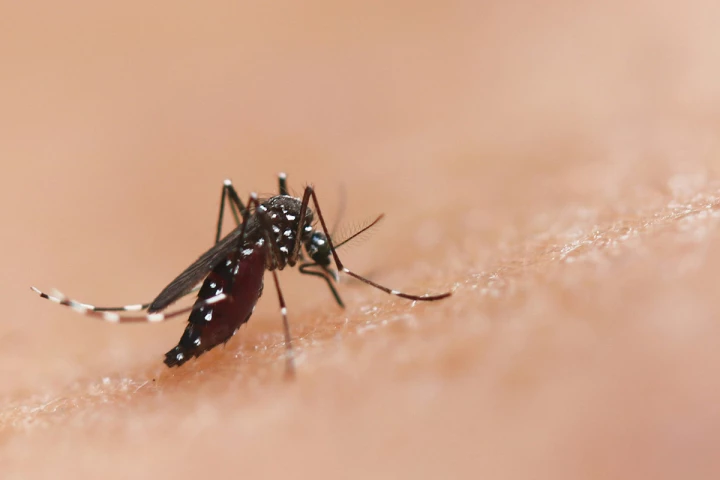Mosquito
-
While we may still not have flying cars, robot butlers or food replicators in our possession, you can now order something else you may have long dreamt of. It's called the Photon Matrix, and it uses lasers to track and kill airborne mosquitoes.
-
Mosquitoes have long been among humanity’s most formidable adversaries, causing more deaths than any other animal. With traditional control methods facing mounting resistance, researchers are seeking innovative ways to combat mosquito-borne disease.
-
Kammok offers what might just be the quickest, most convenient vehicle-mounted awning on the market. Now, it's expanding the design with a fast-pitching no-see-um mesh bug room that installs like a bedsheet.
-
Nobody likes hearing a mosquito somewhere in their bedroom, without being able to see where it is. Well, the Bzigo Iris tracks and highlights mozzies, so you can swat them. It's now 50% cheaper, and doesn't require a Wi-Fi connection.
-
The itch from bug bites, rashes, and other skin conditions can sometimes be so overpowering that it feels impossible to avoid scratching them. But new research explains why you might want to hold off as long as you can.
-
Mosquitoes looking to mate in Australia are about to have the worst sex of their lives – thanks to genetic modifications turning their semen toxic. That could kill females swiftly, and greatly reduce their ability to spread deadly diseases.
-
Mosquitoes do a superb job of spreading diseases like malaria – now researchers have shown it's possible to hijack these pests and distribute vaccines via mosquito bite. In human trials, these mozzie-borne vaccines proved around 90% effective.
-
Genetic studies have revealed that when male mosquitoes lose their hearing, they also lose their sex lives. The surprising discovery could lead to new ways to reduce mosquito populations and the diseases they spread.
-
Mosquitoes are masters of evasion when indoors, seemingly disappearing after you unsuccessfully try to swat them or grab them out of the air. That's where the Bzigo Iris comes in, as it tracks them and shows you where they are.
-
In a completely different kind of germ warfare, researchers have tested out a way to drop mosquitoes infected with disease-fighting bacteria over populations prone to outbreaks of dengue fever. It's an ingenious way to scale up a proven solution.
-
There could soon be a non-toxic, longer-lasting and less-smelly alternative to DEET for repelling mosquitos. Scientists have created genetically engineered human skin bacteria that are unappealing to the irritating and disease-spreading insects.
-
If you're trying to disperse 300,000 disease-fighting mosquitos per day, using a drone may well be your best bet for doing so. The technology has already been tested in Brazil, where it showed very promising results.
Load More









